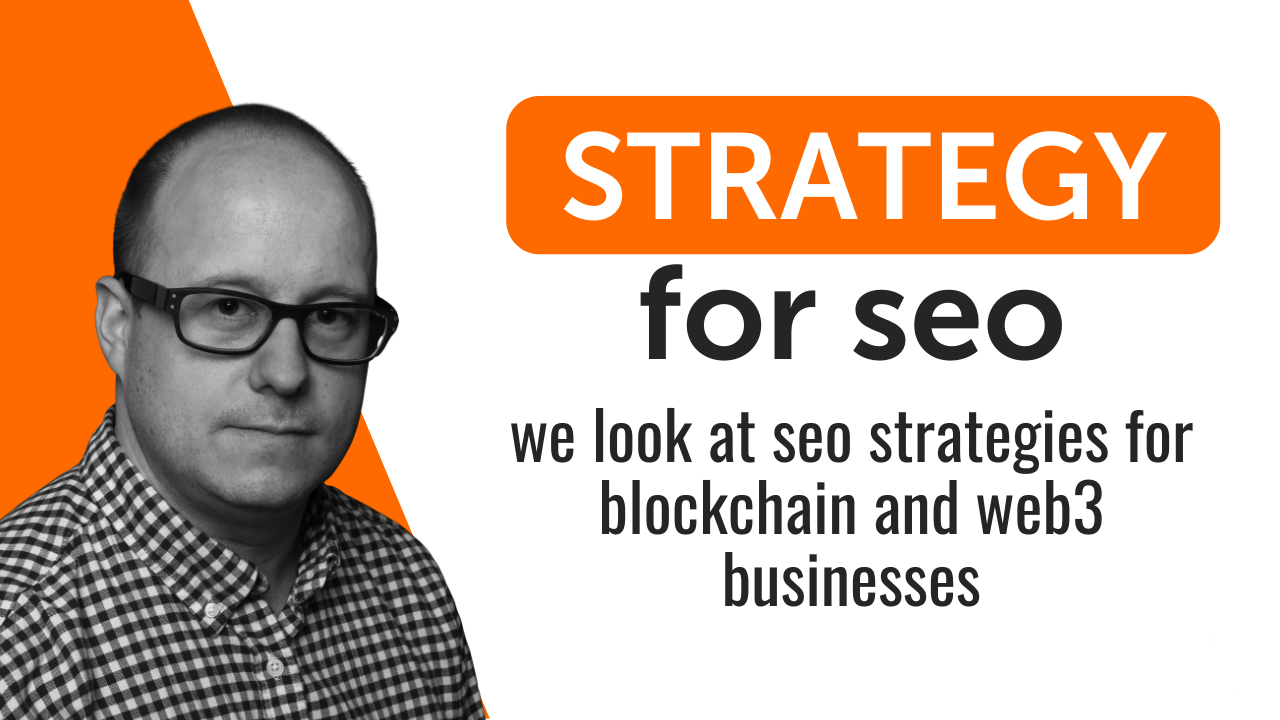
While everyone’s debating the future of decentralized finance, most blockchain companies are getting crushed in search results. We’re talking about an industry where 68% of potential users start their journey with a Google search, likely looking up the Bitcoin price history, yet the majority of Web3 businesses treat SEO like an afterthought.
ConsenSys figured this out the hard way—and then turned it into their secret weapon. Their website visibility jumped from zero to 33%, leaving tech giants like IBM and Deloitte in the dust. Within months, they’d generated over 24,000 organic visitors just in their Enterprise Ethereum section. That’s not luck; that’s understanding how search works in a decentralized world.
What you’re about to discover isn’t your typical SEO playbook. We’ll explore why traditional optimization tactics fall flat when blockchain protocols enter the picture, how to educate skeptical audiences while climbing search rankings, and the trust-building strategies that separate legitimate projects from the noise. Plus, we’ll peek into the future where decentralized search engines might flip everything we know upside down.

Why traditional SEO rules don’t apply
Traditional SEO assumes websites live on predictable servers with clean URL structures. Blockchain tosses that assumption out the window. When your content’s hosted on IPFS or Arweave, Googlebot suddenly can’t find its way around. These decentralized networks don’t play by the old rules—content hashes replace pretty URLs, and real-time accessibility becomes a gamble.
I’ve watched agencies struggle with this disconnect firsthand. You optimize a site perfectly, only to discover half the content isn’t even indexable because it’s scattered across distributed nodes. ConsenSys solved this puzzle by capturing 167 keywords in the top three search positions—that’s 3.7 times better than IBM’s performance. They didn’t achieve this by ignoring decentralization; they worked around it.
The trick lies in creating hybrid architectures. Smart blockchain companies maintain traditional web presences for SEO while linking to decentralized applications. It’s like having your cake and eating it too—you get search visibility without sacrificing the benefits of Web3 infrastructure.
This technical complexity compounds when you realize most people still don’t understand what blockchain actually does. Which brings us to our next challenge.
Teaching rocket science to your grandmother
Explaining blockchain technology through search-optimized content feels like translating quantum physics into emoji. Your audience needs education, but Google needs keywords. Your developers want technical accuracy, but users want simple explanations. Somehow, you’ve got to make everyone happy.
ConsenSys mastered this balance by making organic search their primary lead source—it now accounts for 50% of all their leads. They achieved this by targeting long-tail keywords like “how to start a crypto wallet” alongside high-intent phrases such as “best blockchain for supply chain.” The magic happens when you stop thinking about keywords as isolated terms and start viewing them as genuine questions your audience asks.
You need layers in your content strategy. While deeper technical instructions get engineers looking for “smart contract optimisation,” surface-level pieces catch newbies asking for “what is blockchain.” Every element should organically lead into the next to produce what I consider to be a knowledge funnel. Users come confused and leave informed—and hopefully converted.
ConsenSys organised their material to quickly address particular topics, therefore capturing 41 prominent excerpts in the Enterprise Ethereum space. Position zero is about becoming the official blockchain knowledge source, not only about ranking higher.
Blockchain SEO benefits from educational materials since trust shapes all in this field.
Digital trust in a skeptical world
Here’s the uncomfortable truth: blockchain’s reputation precedes it. Scams, volatility, and complexity have made consumers wary. Your SEO strategy isn’t just about visibility—it’s about proving you’re legitimate before users even click through.
Trust signals matter more in blockchain than anywhere else. SSL certificates aren’t optional extras; they’re baseline requirements. More than 60% of blockchain users browse on mobile devices, so your site better load fast and look professional on every screen size. Google’s algorithms pick up on these technical details, but more importantly, so do your potential customers.
Content verification becomes crucial here. When Presearch attracted over 3 million users by emphasizing transparency and community control, they demonstrated how trust-building directly impacts user adoption. Your material must be correct, but also absolutely verifiable. That entails referencing sources, offering concise justifications, and eschewing the bombastic language that has dogged crypto marketing for years.
Link building in blockchain requires extra finesse. A backlink from a respected industry publication carries more weight than dozens of links from questionable crypto blogs. Quality trumps quantity, especially when search engines are actively filtering out low-trust content in this sector.
The landscape’s shifting toward community-driven trust signals, where user engagement and peer validation influence rankings as much as traditional SEO factors.
What’s coming next
Presearch and Brave Search are among the decentralised search engines rewriting the rulebook. These sites give community involvement and privacy top priority over advertising income, therefore possibly rendering conventional SEO strategies less successful and increasing real, user-driven content.
On Web3 sites, community engagement measurements are already ranking signals. Token-curated registries and reputation-based platforms honour actual worth above strategies focused on game. Your SEO plan must consider these new signals while still performing on standard search engines.
The businesses getting ready for this change are stressing authenticity, community building, and verifiable knowledge. They are positioned for tomorrow’s distributed web, not only maximising for today’s algorithms.
The engine behind search
ConsenSys showed that success with blockchain SEO is profitable. But their method demanded rejecting conventional wisdom and embracing the particular requirements of Web3 optimisation. Those businesses who modify their SEO plans to fit this new reality will get the competitive edge associated with early adoption in a developing industry.
Interested In Working Together?
Introducing Delivered Social. We’re The Most-Rated Digital Agency In Surrey & Hampshire – We’ve Got To Be Doing Something Right.
Delivered Social is a digital marketing agency with one mission—to help businesses grow. We’re famous in Guildford and Portsmouth for our social clinics. We believe in free advice. We build lasting relationships because our team prides itself on being helpful, which our clients appreciate.
If you are looking for a new website or an agency to manage your social media presence, we can help.
If you need something slightly different, here's a super handy list of all our services, or you can always email us.























